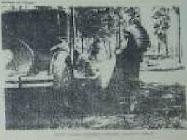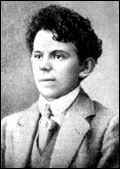My two half-beats toward the prosody discussion:
read an interesting book once by David Keppel-Jones, The Strict Metrical Tradition. Focusing only on iambic pentameter, he describes very specific innovations, starting with Spenser, through Matthew Arnold, which made it the powerful mode it was.
But every era in language & poetry develops its own approaches to rhythm. I don't think the special pleading for form or freedom really helps much. The formalists have done a service by keeping the issue alive at all; but it seems like there may be a fundamental misprision in taking prosodic analysis (which is always belated) and applying it prescriptively to the craft itself. Even the particular innovations outlined by Keppel-Jones grew out of a specific literary milieu, which is not our milieu today.
I have no problem with Mike's promotion of accentual-syllabic practice; if he can help bring it back into circulation, all power to him. But the claims that it is better than free verse, that free verse can't express meaning as well (because it doesn't have a pattern against which to project variations) - this seems needlessly categorical. A milieu that supports both approaches is the one most able to generate new rhythmic discoveries and capabilities.
In my own poetry, I've counted beats and not counted beats; I've worked within set patterns (both given forms & ones I've invented), and not. Everyone has their own distinctive feel for rhythm. When I think of how I work, it seems to me that I revise a poem intuitively until it has a requisite smoothness or "elegance" according to my own standards; I focus on sound values per se and on the symbolic (mathematical) values of line-count and stanza forms, while at the same time aiming for a rhythm which is not clumsy, jarring, perfunctory or seemingly random. What I dislike more than almost anything in the poetry I read, is the sort of casual lineation - line-breaks which simply chop up the sentence any old way. This lazy practice makes for very dull reading. Rhyme, for me, adds interest and tension to line-breaks.
7.16.2004
Labels:
composition2,
Keppel-Jones,
metrics,
Mike Snider,
prosody
Subscribe to:
Post Comments (Atom)



No comments:
Post a Comment